Apple II clone "Pluto" ... seems to be very rare, was sold in germany only
Saturday, November 1, 2014, 01:00 PM
Posted by Administrator
Today I will show a rare
Apple II+ clone. It's rare because of the case and the combination of all parts, and also because of the number which it was sold (only a few hundred in total). It has a metal case, which is unusual for Apple II clones.
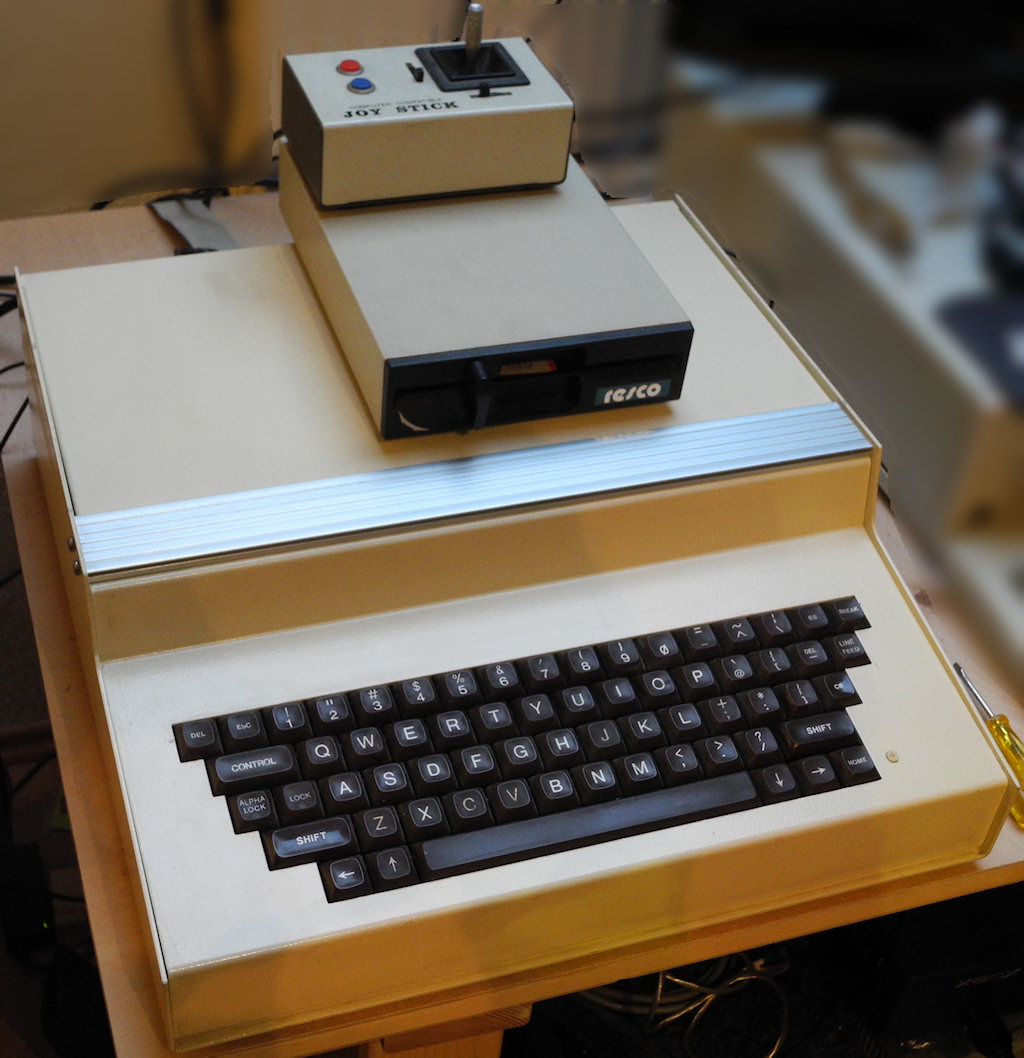
The case has also an easy to be opened cover:
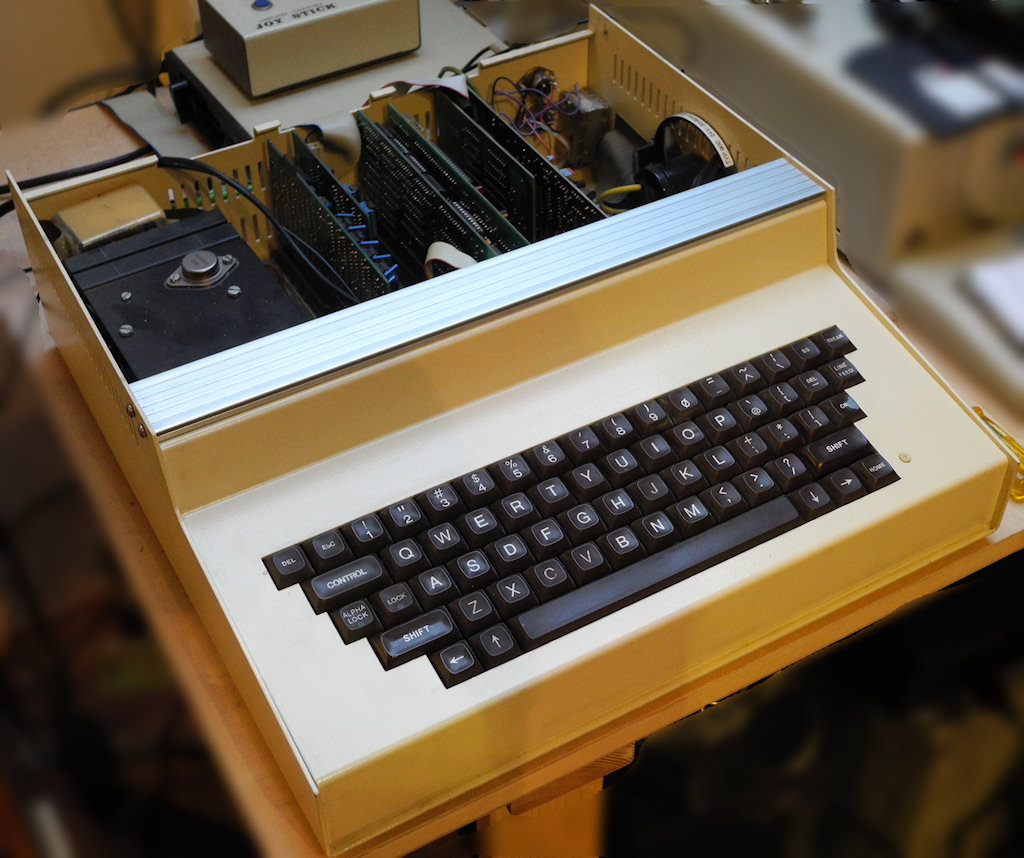
The power supply looks very strange compared to the original Apple II+ power supply, also because it's open at least on one side (this is dangerous and would be forbidden nowadays).
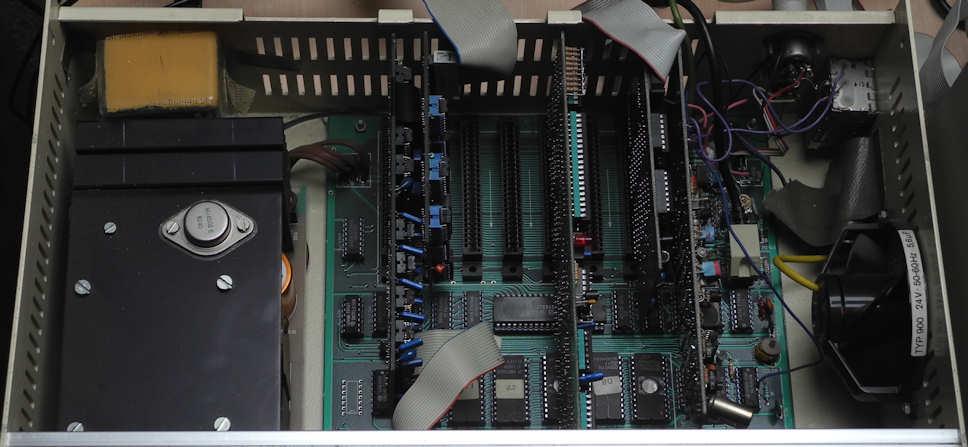
My "Pluto" boots after power up with "PLUTO" instead of "APPLE ][", but that's the only difference you can see. It has INTEGER BASIC ROMs build in.
In Slot #0 a 16KB language card is inserted, in Slot #1 a printer card, in Slot #4 a softcard (Z80), in Slot #6 a standard Apple II disk controller, and in Slot #7 a PAL encoder card, which is similar to the original PAL encoder card but has an additional blank space on the card itself for an optional UHF modulator, which is here build in one of the case corners instead.
I will post additional images in >
applefritter forum< soon, because I have still problems with getting colors instead of grey levels.
The related link points to the latest archived version of "apple2clones.com" (unfortunately it disappeared in winter 2007). They didn't know the "Pluto".
The "Pluto" was distributed 1983 mainly in germany by "Computerbedarf Werner", located in Kerpen. At least one owner I know is located in the Netherlands, so may be some were sold also there.
Getting correct colors on a monitor seems to be *very* difficult.
This is the best picture I can get from Atari's PacMan using a video capture card:
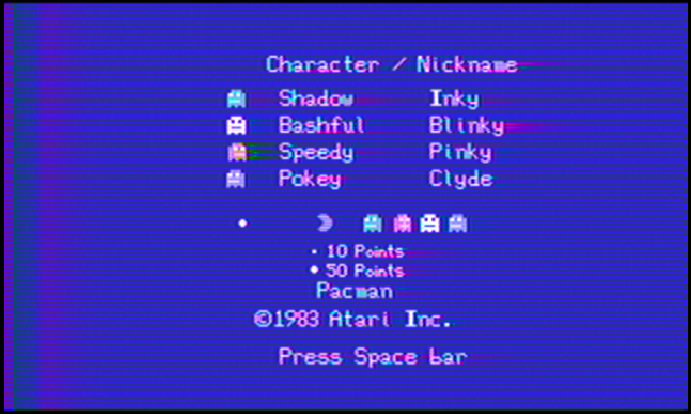
P.S.: Meanwhile I got also an 80 column card (VIDEX) compatible, which switches automatically between 40 and 80 column mode, very useful.
P.P.S.: The only other hint/picture I found was >
here< at the bottom of the page.







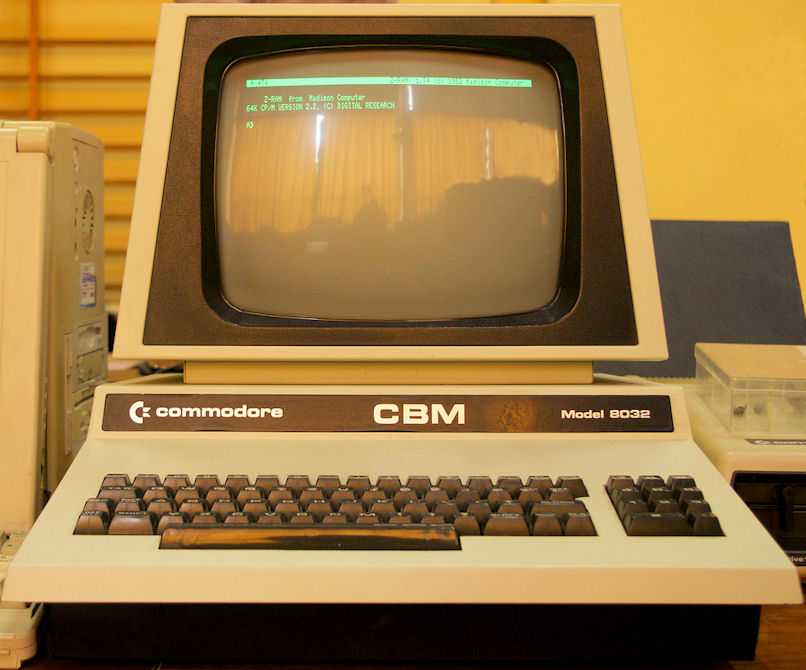
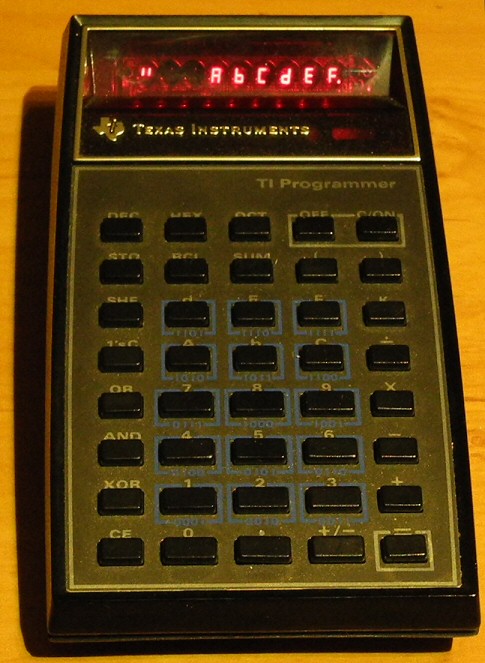





 Random Entry
Random Entry




